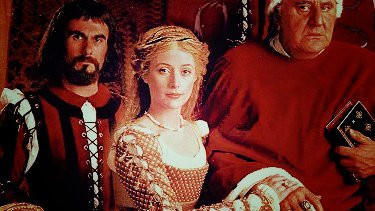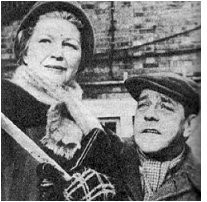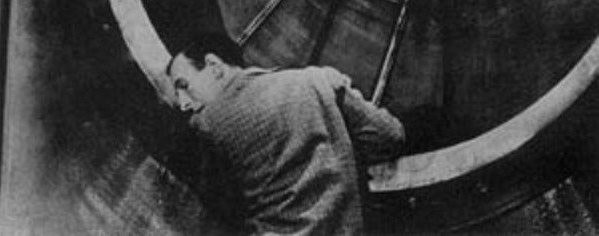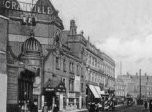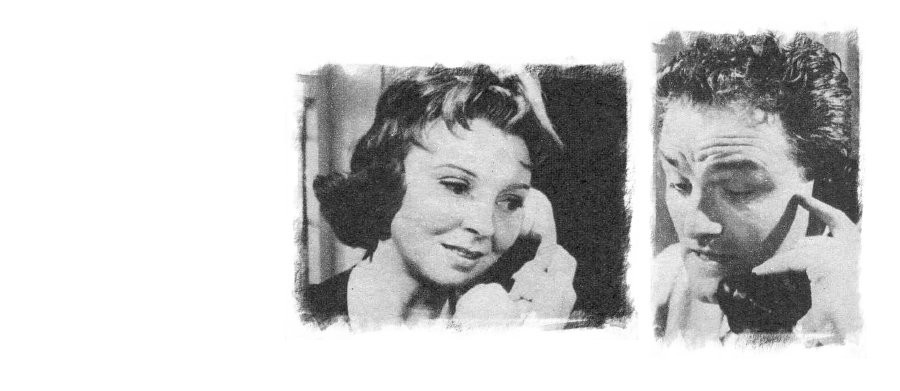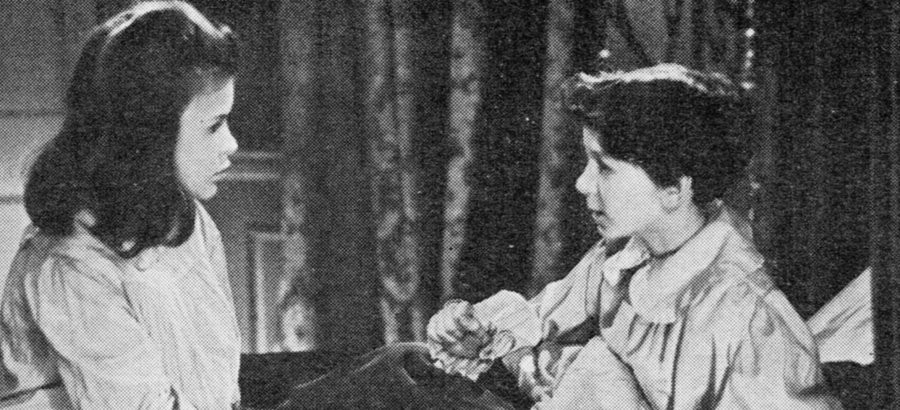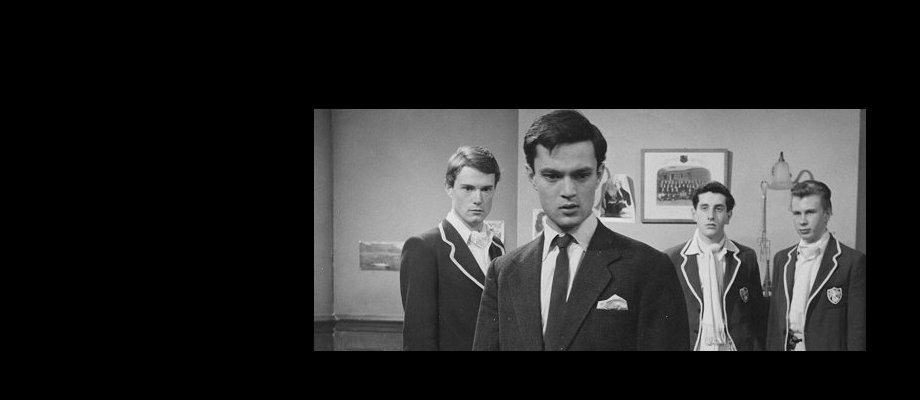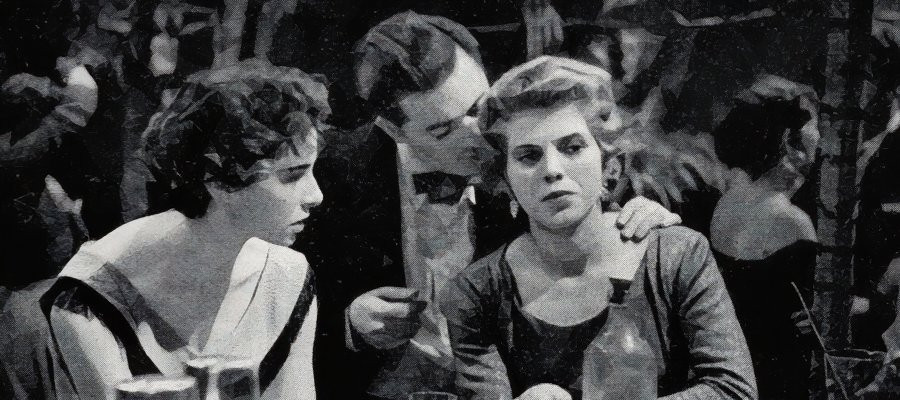
Without Love
1956 - United Kingdom'This is the story of Jacqueline Hart. 'Jacky' to her friends, and to her clients. It is not a pleasant story, but because of the source it springs from, it is not a story to be disregarded. For it is based on a composite picture of the women of the streets, of the five thousand girls in London alone who are to be found every night waiting on the busy thoroughfares of Paddington, Victoria, or Piccadilly, or hostesses in tawdry, smoky basements of Soho that somehow have acquired the name of club.'
So began an article in the Radio Times in December 1956, introducing a bold and unflinching television play that was certain to stir conversation and discomfort among viewers across Britain. Billed as a "docudrama", this production was unlike anything the average household had seen on the small screen. It dared to pull back the curtain on a hidden side of London life, offering a grim but truthful composite of the thousands of women who, night after night, plied their trade on the city's streets. In an age when such subjects were rarely acknowledged in polite society, the programme promised to challenge the sensibilities of a nation still adjusting to the freedoms and realities of the post-war world.
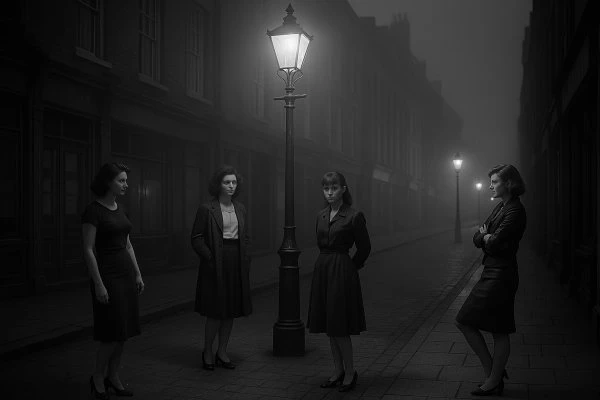
'Where do [these women] come from,' the article asked. 'What are the motives and circumstances which first led them from their normal lives, once they have accepted the lure and luxury of easy money? Or is it indeed that easy?'
Without Love, we were told, did not set out to present a complete analysis of, nor a complete solution to, the problem. The intention was to suggest some of the influences and of the dangers that awaited the young girl in this story, seeking to 'spread her wings' in a world with which she is totally unfamiliar.
Mary Adams, assistant to Controller of Television, appeared on the screen immediately before the production started. “I expect you have asked yourselves whether this is a suitable programme for younger members of the household.” she said. “That decision is yours. It is not a programme for the squeamish. But I think the B.B.C. is right to do it, and I am sure only the B.B.C. could do it.”
The docudrama’s intention likely encompassed a mix of motives—social awareness, moral instruction, and a subtle critique of society—each shaped by the sensibilities and broadcasting standards of the 1950s in Britain.
The fact that the play was introduced as being based on a "composite picture" of real women suggests a journalistic or documentary impulse, to bring a hidden reality into public view. In 1956, the general public had limited access to truthful portrayals of prostitution. It was a taboo topic, rarely discussed openly.
The inclusion of specific areas—Paddington, Victoria, Piccadilly, Soho—lent the piece a documentary feel, giving it a sense of immediacy and real-world relevance. This suggests the intention wasn't purely to moralise, but to inform and confront the audience with a truth often kept at arm’s length.
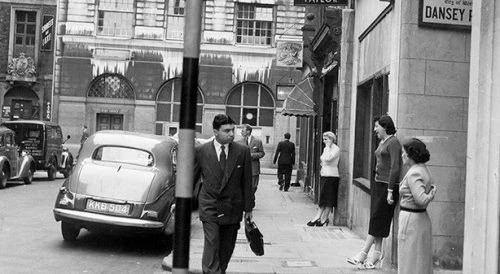
In a post-war Britain still rebuilding its moral and social identity, showing the grim underside of London nightlife may have served as a quiet rebuke to a society that preferred to look the other way. Television dramas dealing with “fallen women” often carried a heavy moral warning: to deter other girls from taking similar paths. The stylised misery of the protagonist—Jacqueline Hart—paired with the stark warning in the Radio Times preamble (“it is not a pleasant story”) positions the play as a cautionary tale.
It was likely crafted with an eye toward social responsibility, perhaps even public service, while also adhering to the broadcasting norms of the time. The BBC, especially in the 1950s, walked a fine line between pushing boundaries and maintaining its image as a moral, educational institution.
Indeed, rather than leave viewers to make up their own mind, Without Love was immediately followed by Facing the Problem, a discussion that debated in studio, the play which a selected panel of viewers had just watched for the first time themselves. On this panel was a doctor, a barrister, Miss Marghanita Laski (a journalist and novelist who had written plays, short stories and was a panellist on What's My Line?), and Miss Hilary Halpin, (chairman of the children's committee of London County Council). They all commended the acting and the authenticity of the facts. The stark fact that stood out was that ‘40 per cent of these girls die before they are 40.’
The drama began with a young girl leaving an unhappy home, going to London, and relying for affection on a man living on her earnings. John Ross writing his critique in the Leicester Evening Mail pointed out how 'Everybody, from the magistrate to the welfare workers, seemed fatalistic. The girls were caught, fined and caught again.'
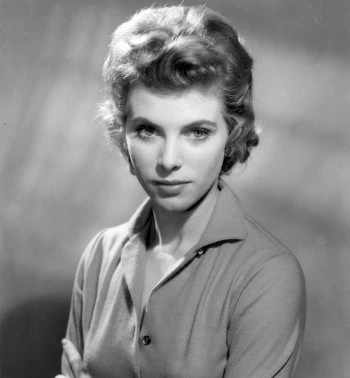
According to TV critic Cyril Aynsley writing in the Daily Express ‘There was fine acting from Clare Austin, Billie Whitelaw and Paul Stassino.’ Alfred Burke also appeared in the production and there was a brief appearance for his television debut (as ‘person in the street’) by Tom Courtney.
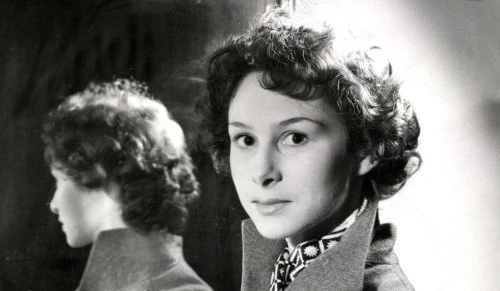
It is not known, at the time of writing, if the production survives in the BBC archives, but contemporary reviews in the press, of which there were many, praised the production, although there were some that were unhappy with part of the story as reported by the Aberdeen Evening News the following day (Friday 14 December): ‘Was it wrong to show a U.S. Serviceman as a teenage girl’s seducer in a television documentary about prostitution last night? In the sixty minute programme "Without Love," about a provincial girl who becomes a London 'streetwalker', an American Serviceman was shown in the story as a man who left her with his baby and instilled in her the bitterness which led her to prostitution.
In a television discussion which followed ‘Without Love,' an anonymous doctor said he thought it “unfortunate” that an American should have been depicted in that way. Praising the documentary as a whole, he regretted that Americans might feel that we thought them all like the seducer in the story. A B.B.C. spokesman said several callers, including Americans had rung up to complain, but the number was "negligible.” Gil Calder, who produced "Without Love,” to-day replied to these critics. "It was certainly not our intention to single out Americans, the main cause of young girls’ immorality." he said. "I don’t think that would be true, anyway."’
The Lancashire Evening Post critic said, ‘“Without Love’ was in the best tradition of B.B.C. documentaries with a social purpose. It had an excellent script and was played supremely by a well-chosen cast. There was great value, too, which in the studio discussion which followed an intensely human and constructive postscript on the general pitiful subject of prostitution.’
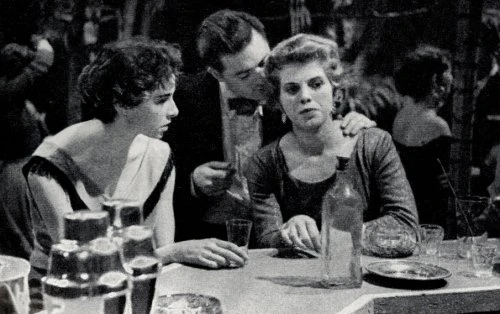
The Scotsman said, ‘My respects to television on its courage and good faith in presenting “Without Love.” This dramatised documentary by Colin Morris, dealing with the influences which give rise to prostitution may not have been the final word on the subject—but it pulled few punches, and punches, by and large, won't come amiss to the social conscience, even when it's the conscience of a sitting target like the fireside licence-holder.’
Colin Morris was well-versed in the use of dramatised documentary to explore social issues. He teamed up with producer Gil Calder, a seasoned figure in television who had been active since 1948. Their collaboration began with Sunk Rock, a quietly observational piece about the daily routine of a lighthouse-keeper. In June 1955, they followed this with The Unloved, featuring Rupert Davies (later known for Maigret) as a headmaster and Melvyn Hayes (It Ain't Half Hot Mum) as a troubled boy in a special school. The production went on to win two awards. At the time, social issues were rarely addressed so directly. Studio interviews did exist, but they were often stiff and overly formal. Morris broke that mould, writing about the struggles of unmarried mothers in Woman Alone, the realities of alcoholism, industrial unrest in Strike, juvenile delinquency in Tearaway, and explored crime through the drama Jacks and Knaves.
Even without hard evidence, the legacy of Without Love fits neatly into Colin Morris’s mission: to shine light into dark corners of society, using factual drama to inform, provoke, and caution. It likely stirred quiet but significant conversation among viewers willing to engage with difficult truths.
Review by Laurence Marcus
Seen this show? How do you rate it?
Seen this show? How do you rate it?
Published on July 7th, 2025. Written by Laurence Marcus for Television Heaven.


